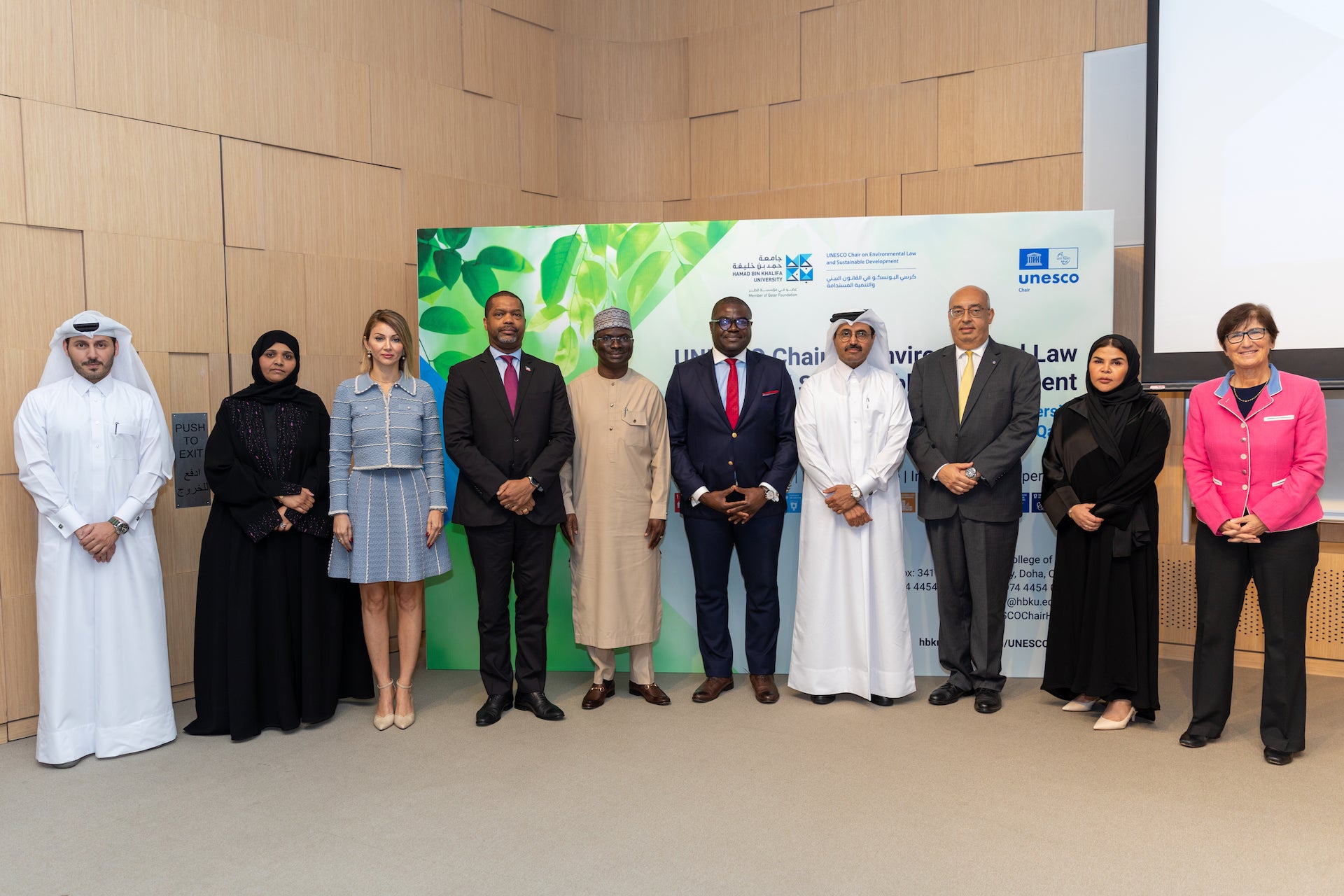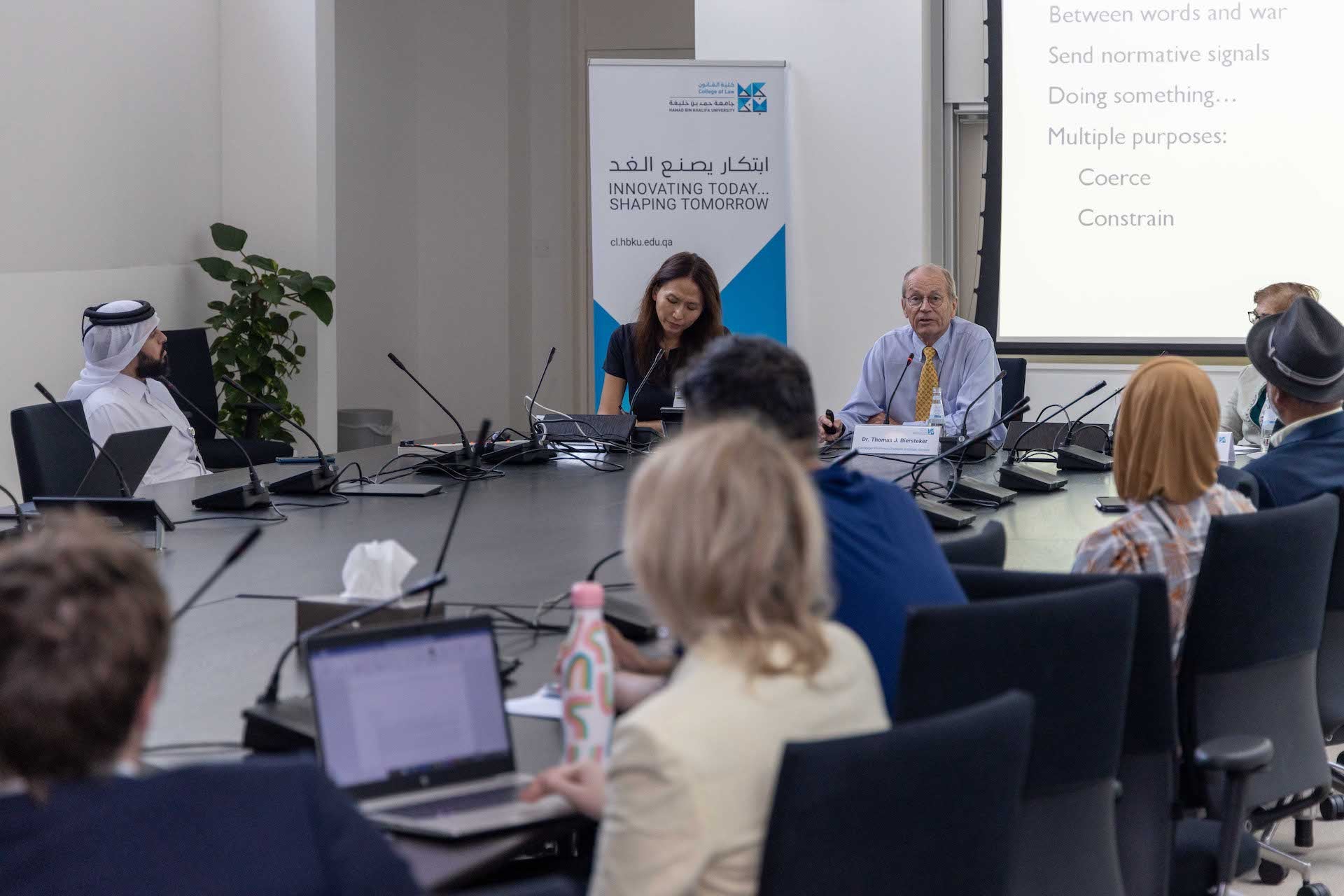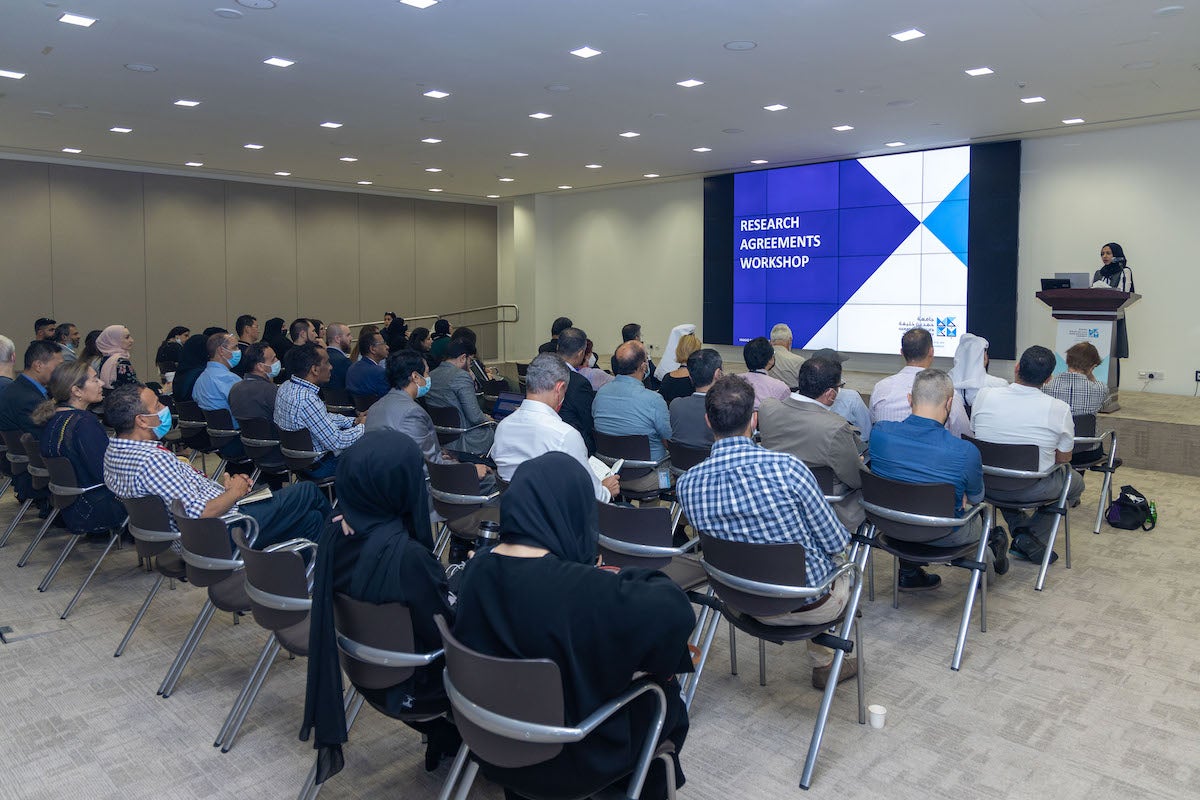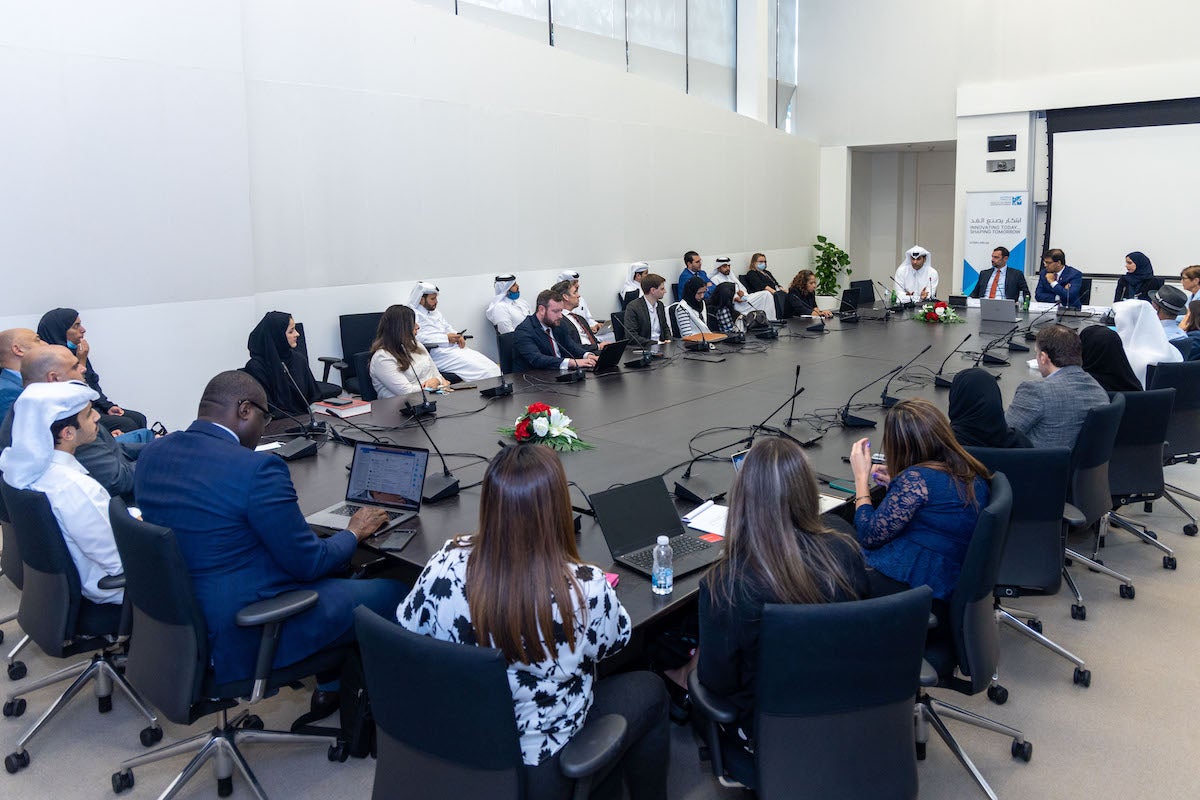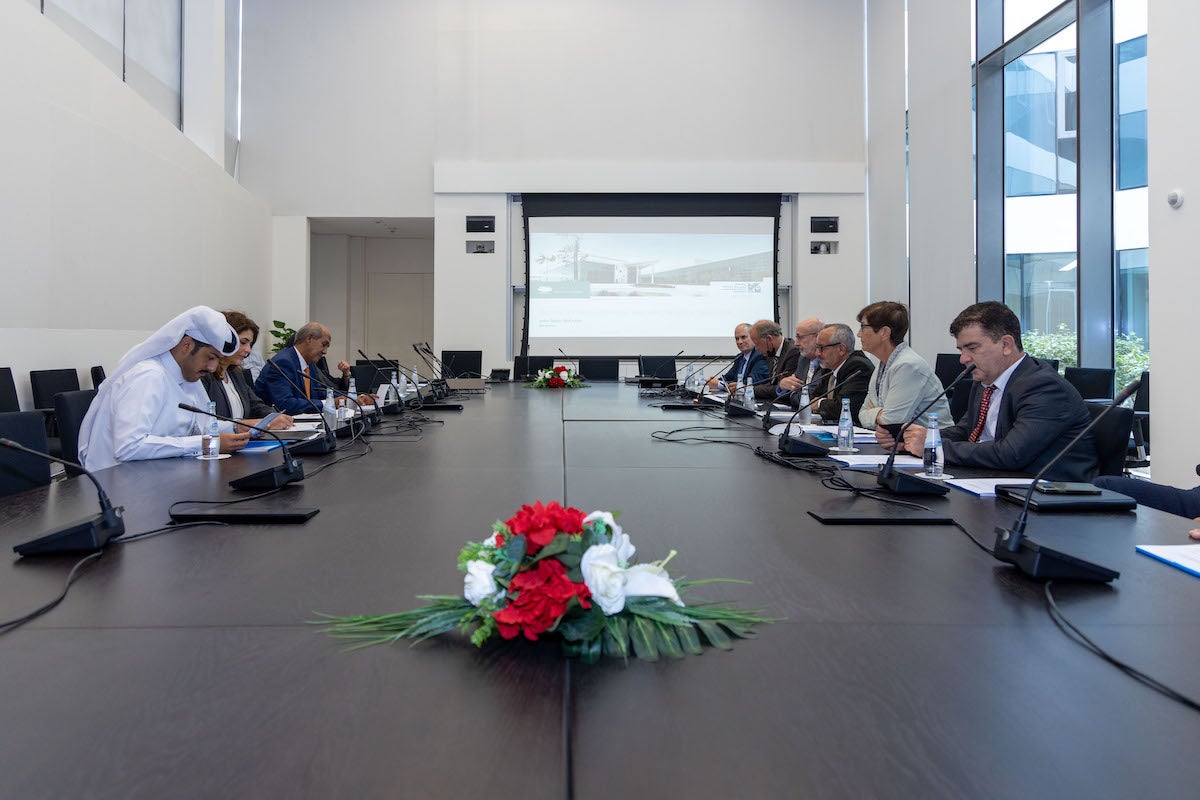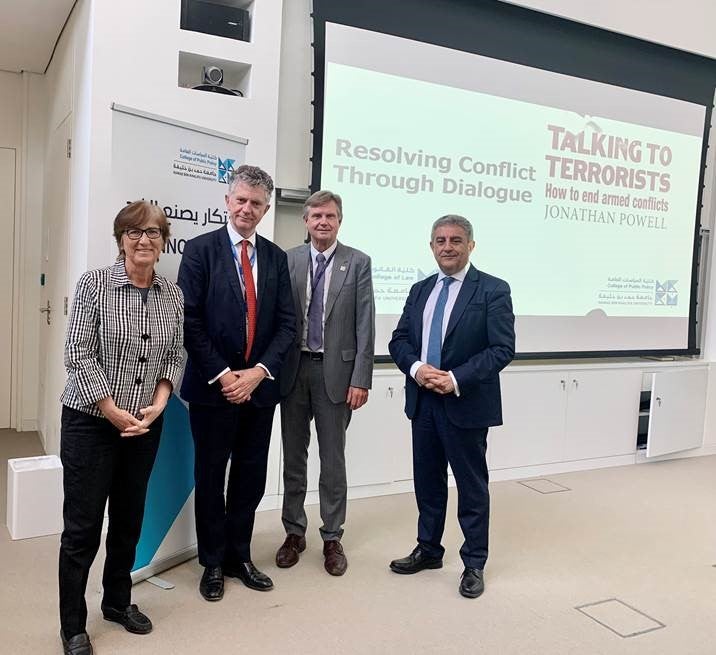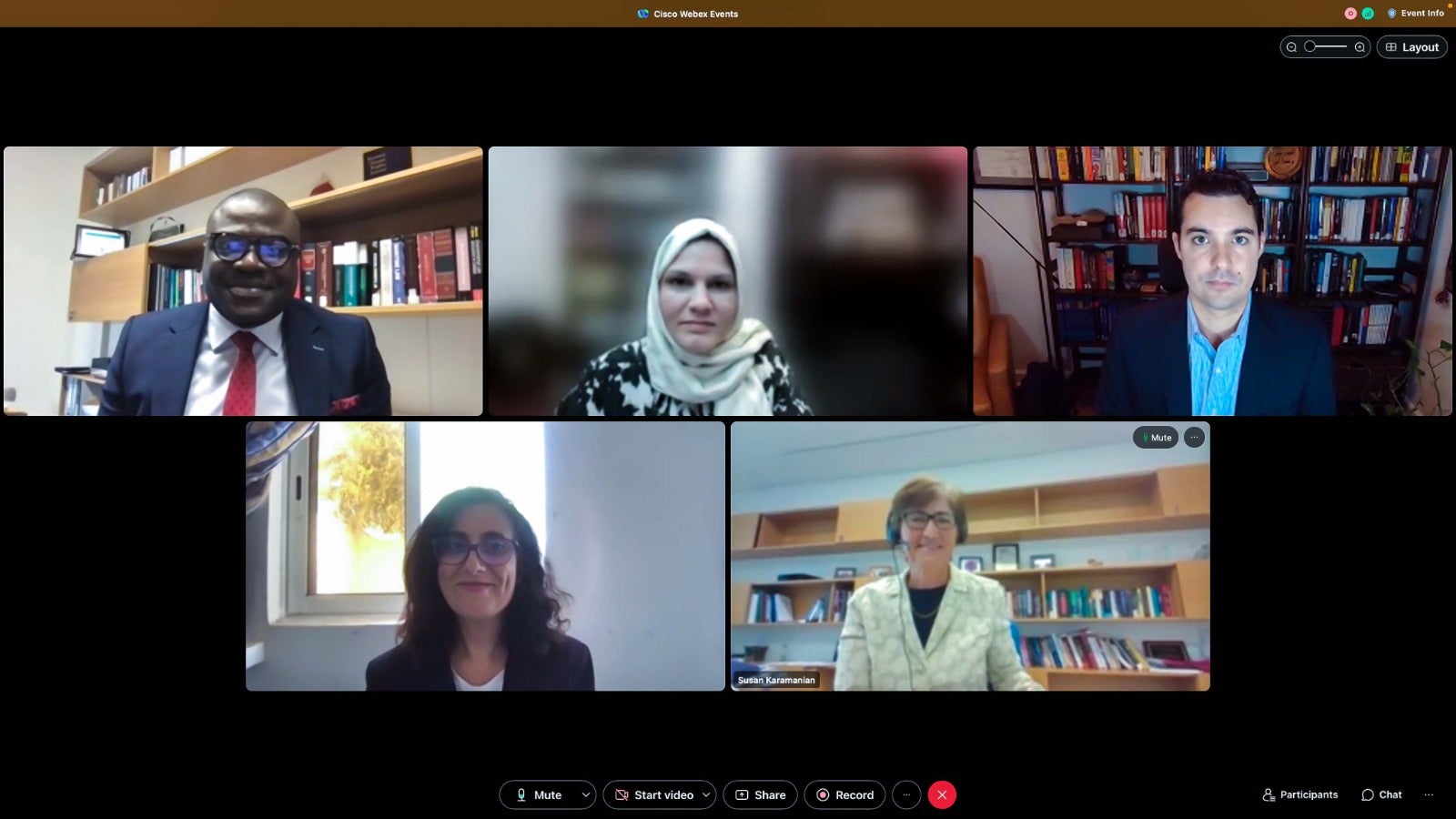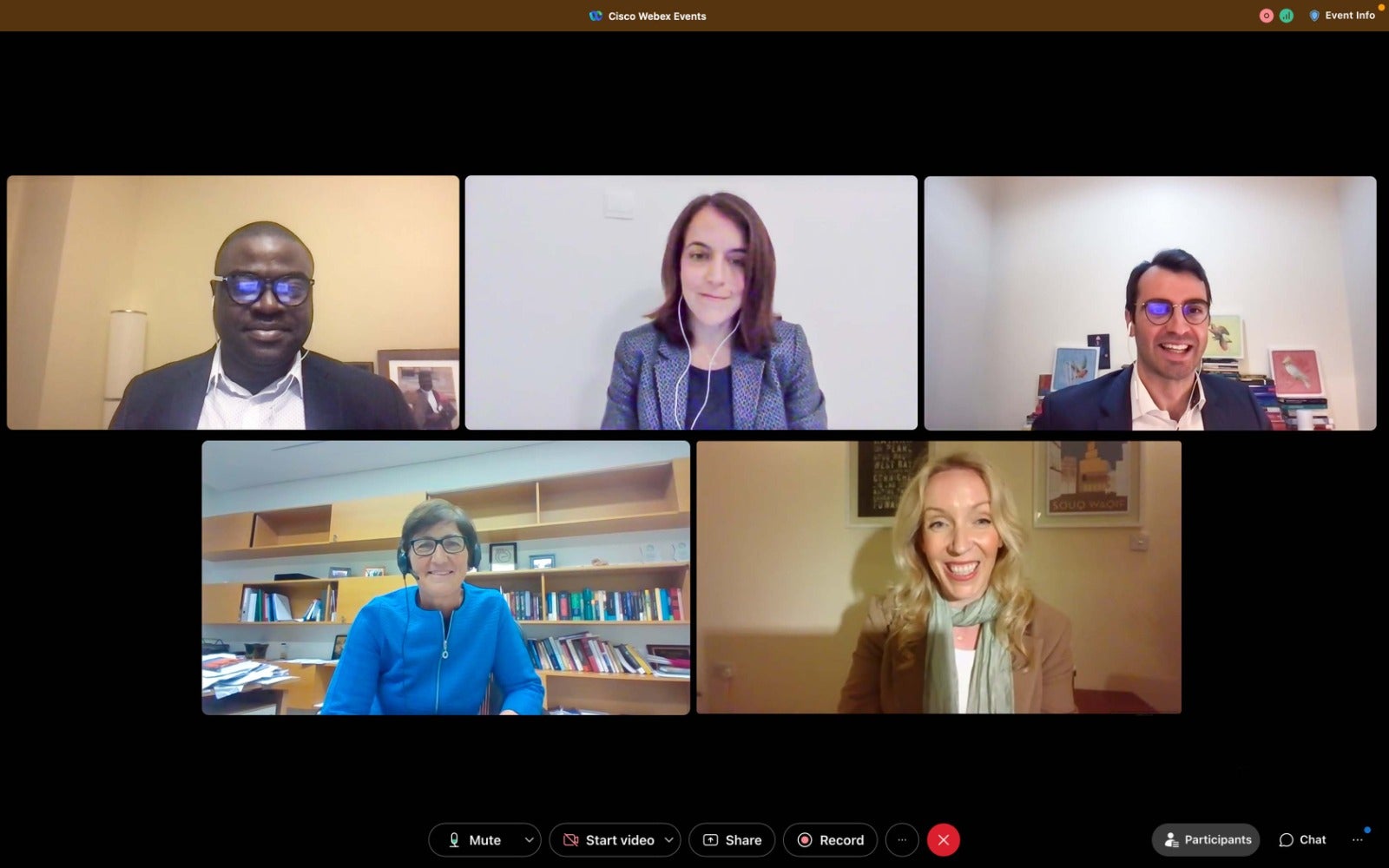
Noted Speakers Attend CLPP’s Latest Symposium
A full house witnessed the transfer of the QICDRC presidency
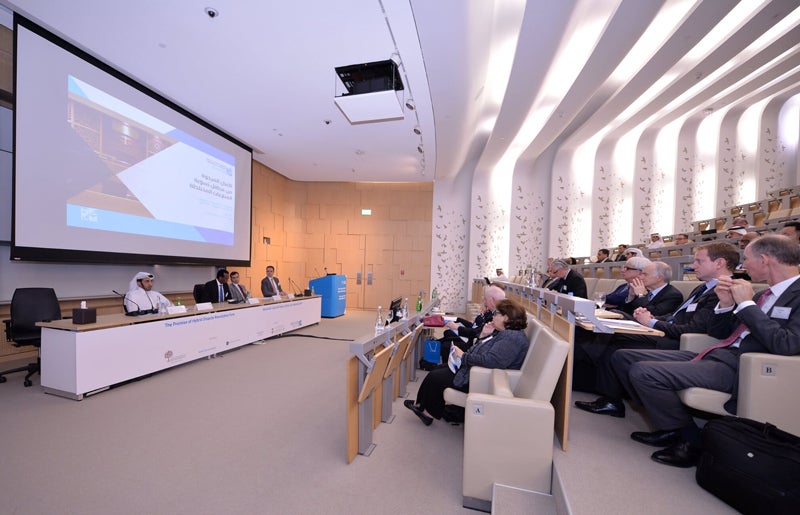
The College of Law and Public Policy (CLPP), in collaboration with the Qatar International Court and Dispute Resolution Centre (QICDRC) and Queen Mary University London School of Law, hosted the world’s first conference on hybrid courts. It was supported by Qatar National Research Fund, White & Case, Doha and 3VB (3 Verulam Buildings/Gray’s Inn, London). The conference studied the idea behind the establishment of these courts and investigated the relationship between hybrid courts and more established forms of dispute resolution, such as ordinary courts and arbitral tribunals.
Held over two days in the second week of November, the conference brought together important partners and distinguished speakers from the judiciary, academia and practice. “The HBKU Conference on Hybrid Dispute Resolution assembled an eminent group of lawyer experts in the dispute resolution field,” noted Sir William Blair, former Judge in Charge of the Commercial Court of England and Wales, and Judge at the QICDRC. “With new courts being established in various parts of the world with similar roles to that of the Qatar International Court, the conference was timely, and the discussion helped bring out the challenges facing these courts and how they may best develop in the future.”
During the conference, Lord Phillips of Worth Matravers, a former Lord Chief Justice of England and Wales and the inaugural President of the Supreme Court of the United Kingdom, handed over his responsibilities of the QICDRC to new President Lord Thomas of Cwmgiedd, who recently retired as Lord Chief Justice of England and Wales. Lord Thomas remarked: “This was a world-class conference on hybrid dispute resolution. HBKU enabled experts from many different jurisdictions to discuss this developing subject. Different methods and approaches were carefully analyzed from a central perspective – that of the user. The end product was a considerable degree of unanimity on the issues that needed to be resolved and on the ways forward that could be taken.”
Commenting on the conference, CLPP Dean Susan L. Karamanian said: “CLPP was honored to work with the Qatar International Court and Dispute Resolution Centre and distinguished international co-sponsors to host a high-level discussion on hybrid courts. It was poignant that the conference occurred upon the transition of QIC leadership. We played a small role in celebrating the accomplishments of the QIC under the leadership of Lord Phillips, and learning more about its future from Lord Thomas. Their dedication, along with that of the other judges, including Sir William Blair who attended the conference, and the QIC leadership team - principally its Chief Executive Office Faisal Rashid Al-Sahouti and the Registrar, Christopher Grout - has ensured a solid foundation for the QIC.”
Mr. Grout noted that the event brought together judges and other legal professionals from a variety of civil and common law jurisdictions to discuss the emergence of a distinct breed of courts, namely those which apply international best practices distilled from the historical traditions that we are all used to. “The idea of establishing a recognized body of international jurisprudence – based upon the judgments of these new courts – is a fascinating concept and one worth exploring in more detail,” he said.
Highlighting the presence of distinguished judges and scholars, Professor Georgios Dimitropoulos, conference co-chair and CLPP Assistant Professor, said: “Seeing the success of our conference, we are planning further initiatives through which we are looking at increasing our collaboration with the QICDRC and Queen Mary University London School of Law.”
Stavros Brekoulakis, Professor of International Arbitration and Commercial Law at Queen Mary University London School of Law and conference co-chair, stated: “The conference broke new ground in providing for the first time a comprehensive appraisal of one of the most exciting new developments in the field of international dispute resolution. We are grateful to the outstanding group of judges, scholars and practitioners who presented at the conference, and look forward to continuing the discussion in the future.”
Related News
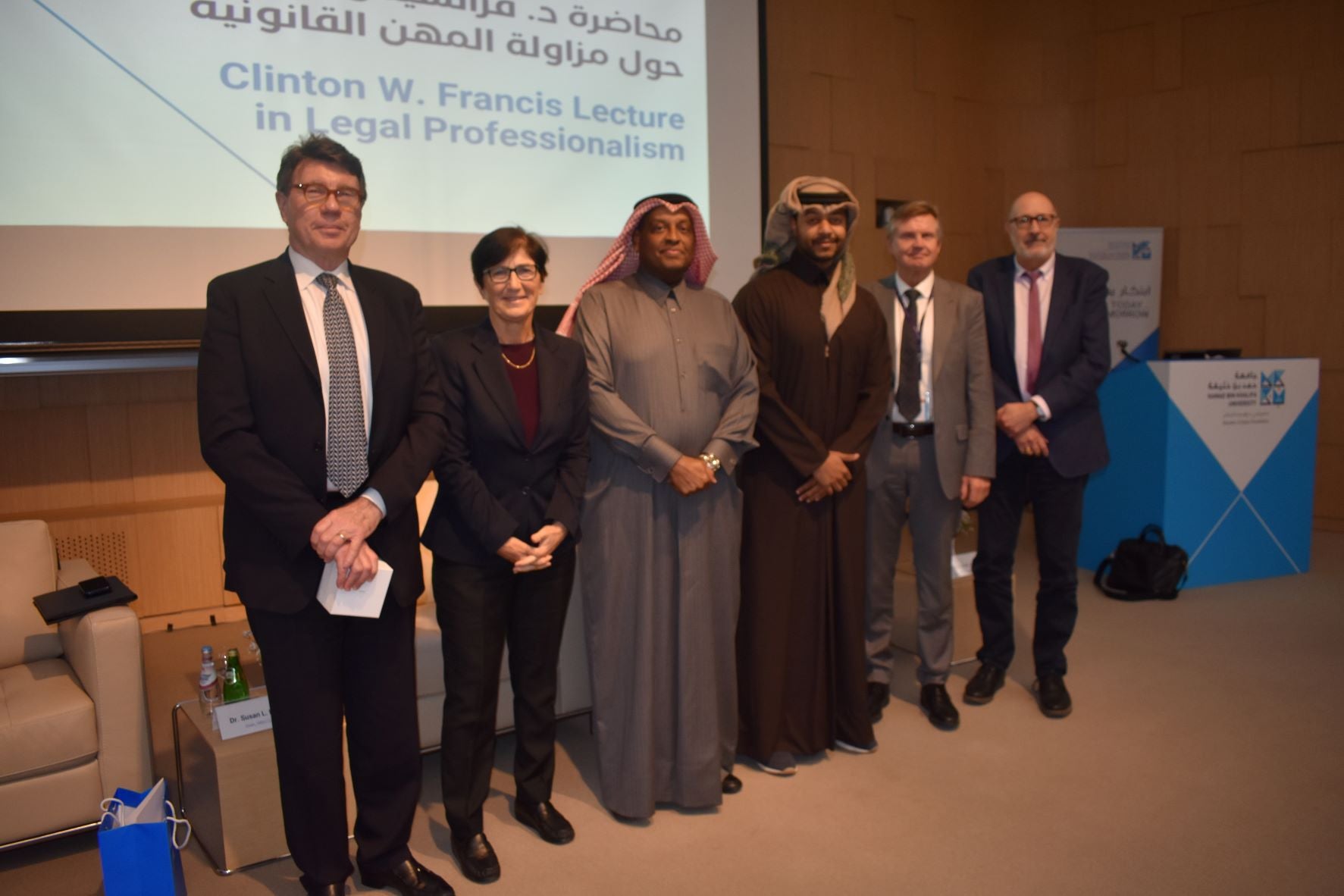
College of Law Hosts Second Clinton W. Francis Lecture in Legal Professionalism
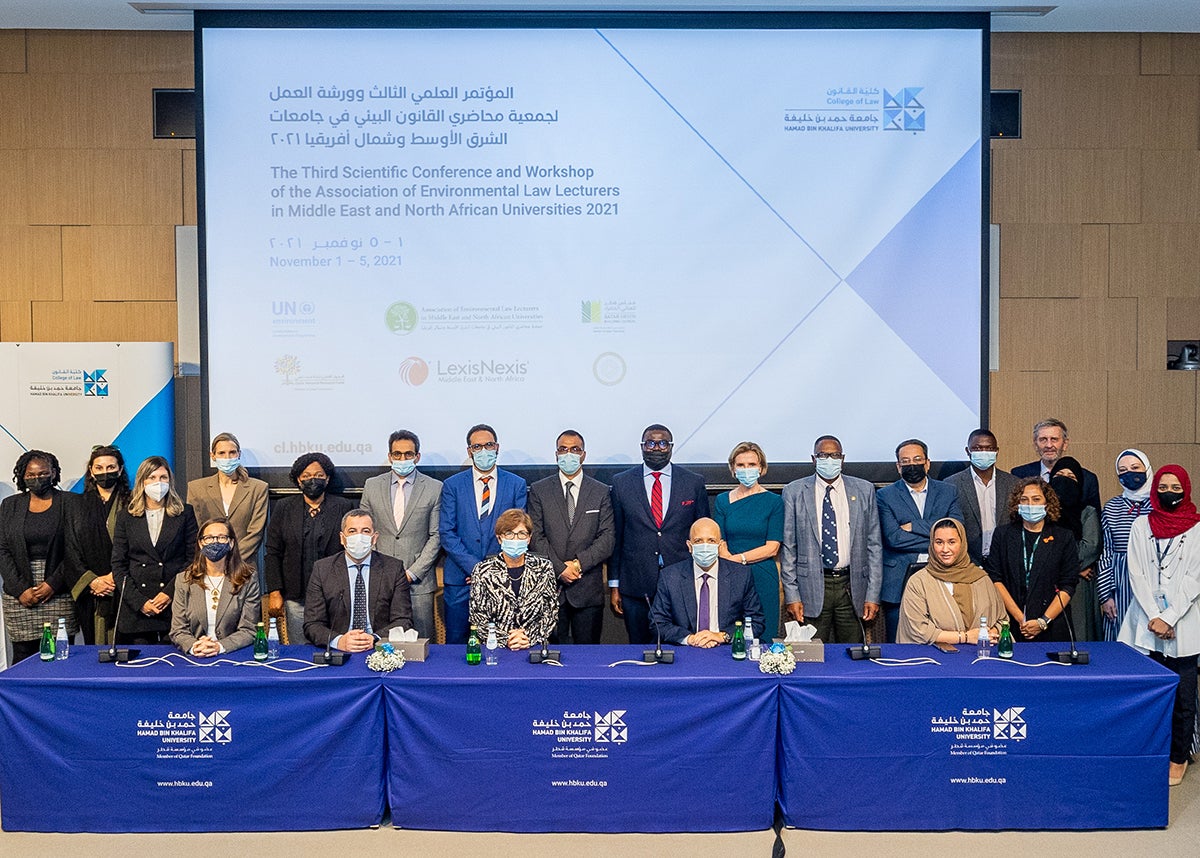
College of Law Hosts Third Scientific Conference of Middle East Environmental Law Scholars
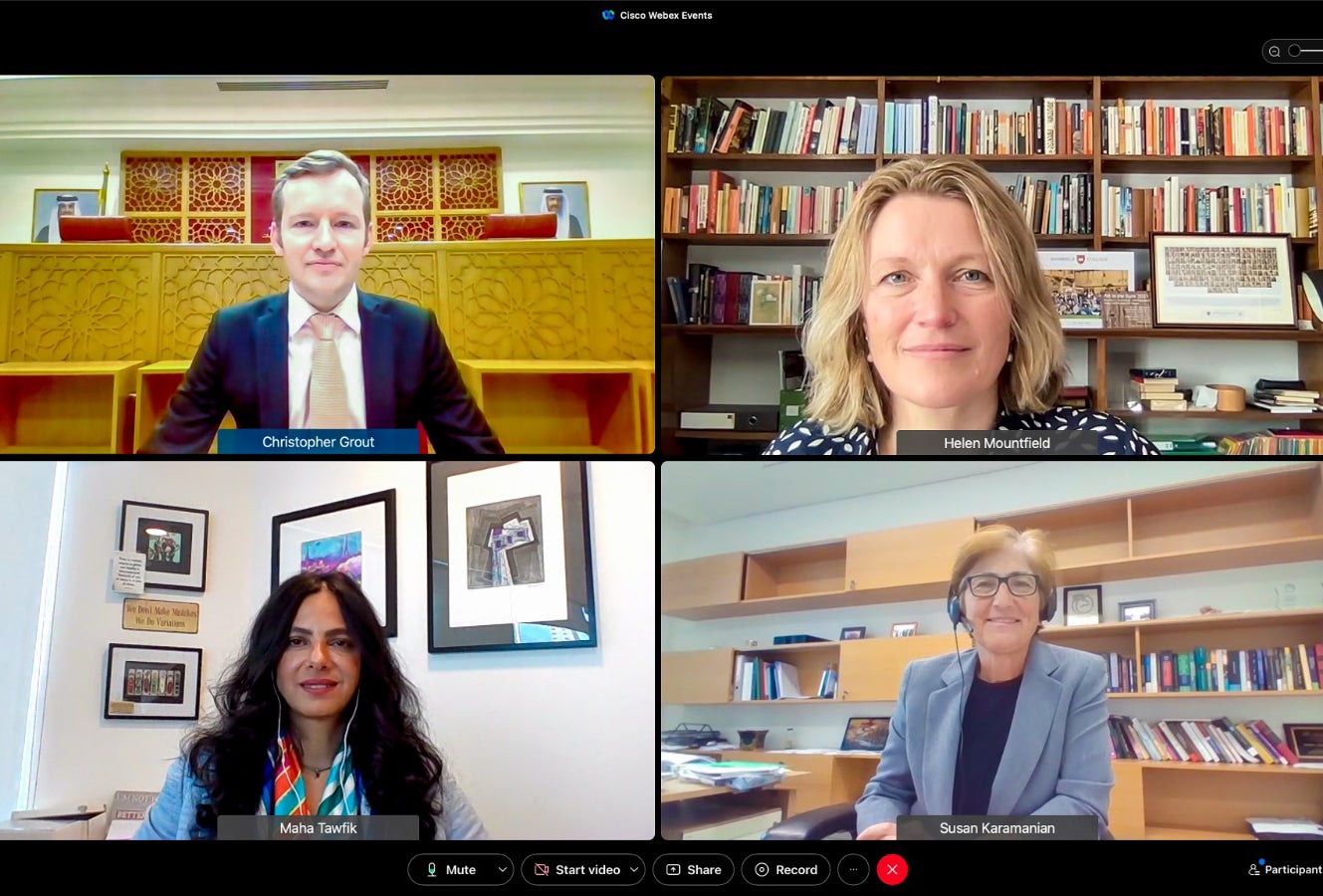
College of Law and Qatar International Court Co-Host Event on Employment Dispute Issues in Qatar

Addressing Climate Change Impacts on the Sporting Calendar: A New Factor in Risk Planning?

Lebanon’s Public Debt Default: The Greek Experience Shows the Cause is as Important as the Remedy
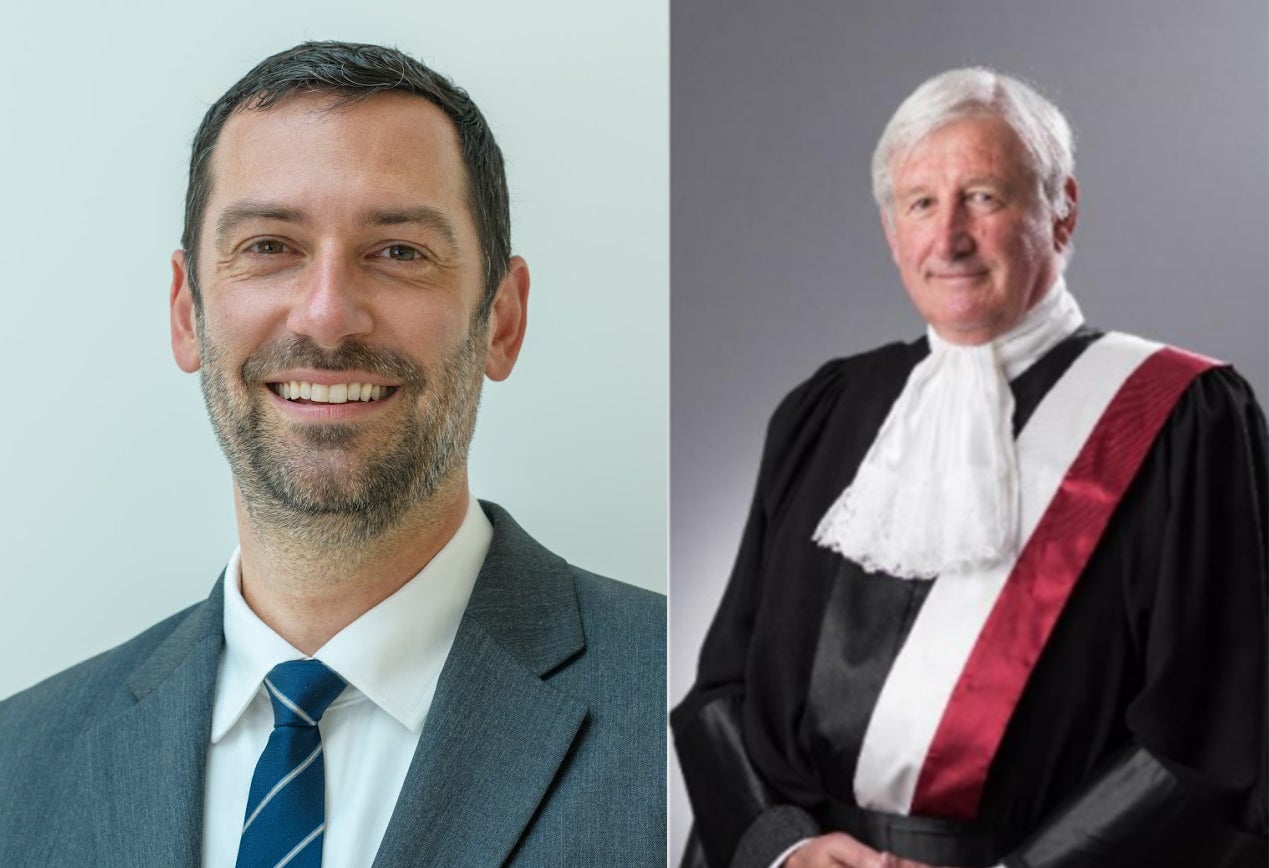
College of Law and the Qatar International Court and Dispute Resolution Centre Examine Mediation in Qatar
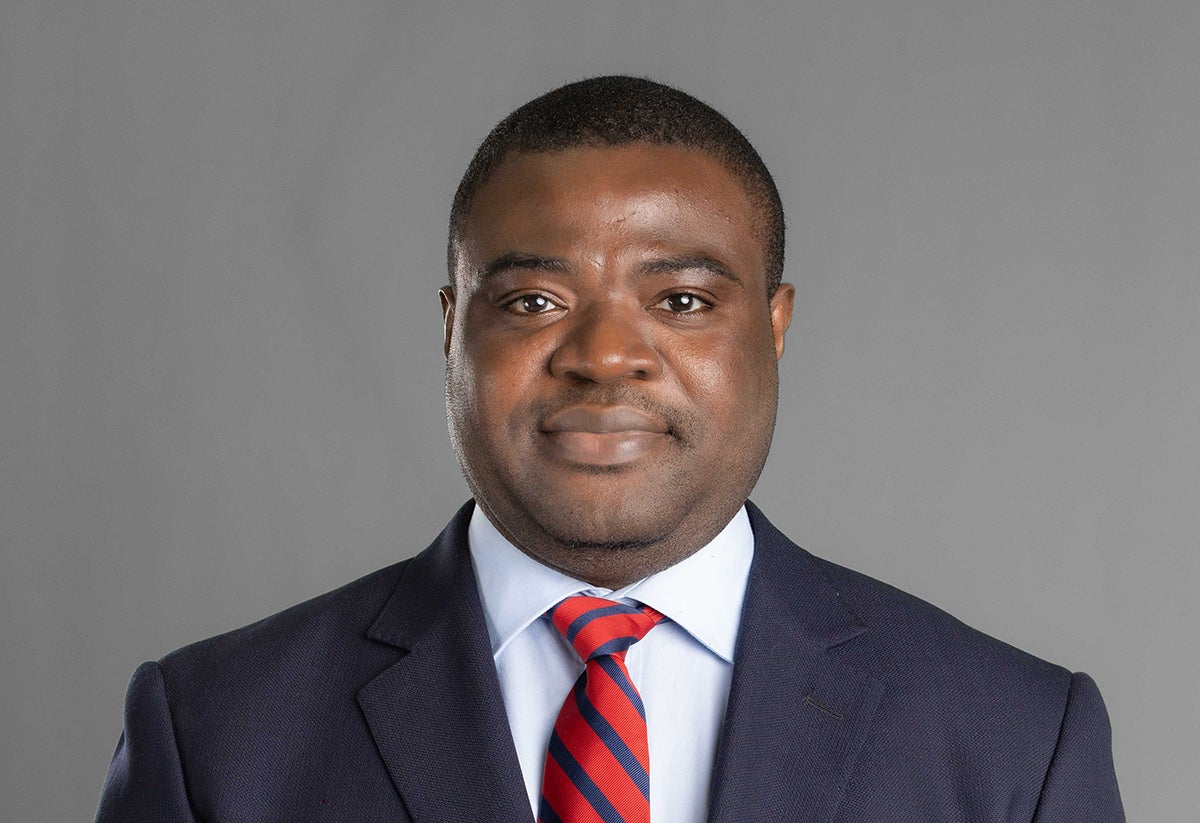
College of Law Roundtable for MENA Scholars Discusses Strengthening Environmental Legal Education and Practice

College of Law Hosts Second Clinton W. Francis Lecture in Legal Professionalism

College of Law Hosts Third Scientific Conference of Middle East Environmental Law Scholars

College of Law and Qatar International Court Co-Host Event on Employment Dispute Issues in Qatar

Addressing Climate Change Impacts on the Sporting Calendar: A New Factor in Risk Planning?

Lebanon’s Public Debt Default: The Greek Experience Shows the Cause is as Important as the Remedy

College of Law and the Qatar International Court and Dispute Resolution Centre Examine Mediation in Qatar

College of Law Roundtable for MENA Scholars Discusses Strengthening Environmental Legal Education and Practice

College of Law Hosts Second Clinton W. Francis Lecture in Legal Professionalism

College of Law Hosts Third Scientific Conference of Middle East Environmental Law Scholars

College of Law and Qatar International Court Co-Host Event on Employment Dispute Issues in Qatar

Addressing Climate Change Impacts on the Sporting Calendar: A New Factor in Risk Planning?

Lebanon’s Public Debt Default: The Greek Experience Shows the Cause is as Important as the Remedy

College of Law and the Qatar International Court and Dispute Resolution Centre Examine Mediation in Qatar

College of Law Roundtable for MENA Scholars Discusses Strengthening Environmental Legal Education and Practice

College of Law Hosts Second Clinton W. Francis Lecture in Legal Professionalism

College of Law Hosts Third Scientific Conference of Middle East Environmental Law Scholars

College of Law and Qatar International Court Co-Host Event on Employment Dispute Issues in Qatar

Addressing Climate Change Impacts on the Sporting Calendar: A New Factor in Risk Planning?

Lebanon’s Public Debt Default: The Greek Experience Shows the Cause is as Important as the Remedy

College of Law and the Qatar International Court and Dispute Resolution Centre Examine Mediation in Qatar

College of Law Roundtable for MENA Scholars Discusses Strengthening Environmental Legal Education and Practice

College of Law Hosts Second Clinton W. Francis Lecture in Legal Professionalism

College of Law Hosts Third Scientific Conference of Middle East Environmental Law Scholars

College of Law and Qatar International Court Co-Host Event on Employment Dispute Issues in Qatar

Addressing Climate Change Impacts on the Sporting Calendar: A New Factor in Risk Planning?

Lebanon’s Public Debt Default: The Greek Experience Shows the Cause is as Important as the Remedy

College of Law and the Qatar International Court and Dispute Resolution Centre Examine Mediation in Qatar

College of Law Roundtable for MENA Scholars Discusses Strengthening Environmental Legal Education and Practice

College of Law Hosts Second Clinton W. Francis Lecture in Legal Professionalism

College of Law Hosts Third Scientific Conference of Middle East Environmental Law Scholars

College of Law and Qatar International Court Co-Host Event on Employment Dispute Issues in Qatar

Addressing Climate Change Impacts on the Sporting Calendar: A New Factor in Risk Planning?

Lebanon’s Public Debt Default: The Greek Experience Shows the Cause is as Important as the Remedy

College of Law and the Qatar International Court and Dispute Resolution Centre Examine Mediation in Qatar

College of Law Roundtable for MENA Scholars Discusses Strengthening Environmental Legal Education and Practice

College of Law Hosts Second Clinton W. Francis Lecture in Legal Professionalism

College of Law Hosts Third Scientific Conference of Middle East Environmental Law Scholars

College of Law and Qatar International Court Co-Host Event on Employment Dispute Issues in Qatar

Addressing Climate Change Impacts on the Sporting Calendar: A New Factor in Risk Planning?

Lebanon’s Public Debt Default: The Greek Experience Shows the Cause is as Important as the Remedy

College of Law and the Qatar International Court and Dispute Resolution Centre Examine Mediation in Qatar

College of Law Roundtable for MENA Scholars Discusses Strengthening Environmental Legal Education and Practice

College of Law Hosts Second Clinton W. Francis Lecture in Legal Professionalism

College of Law Hosts Third Scientific Conference of Middle East Environmental Law Scholars

College of Law and Qatar International Court Co-Host Event on Employment Dispute Issues in Qatar

Addressing Climate Change Impacts on the Sporting Calendar: A New Factor in Risk Planning?

Lebanon’s Public Debt Default: The Greek Experience Shows the Cause is as Important as the Remedy

College of Law and the Qatar International Court and Dispute Resolution Centre Examine Mediation in Qatar

College of Law Roundtable for MENA Scholars Discusses Strengthening Environmental Legal Education and Practice

College of Law Hosts Second Clinton W. Francis Lecture in Legal Professionalism

College of Law Hosts Third Scientific Conference of Middle East Environmental Law Scholars

College of Law and Qatar International Court Co-Host Event on Employment Dispute Issues in Qatar

Addressing Climate Change Impacts on the Sporting Calendar: A New Factor in Risk Planning?

Lebanon’s Public Debt Default: The Greek Experience Shows the Cause is as Important as the Remedy

College of Law and the Qatar International Court and Dispute Resolution Centre Examine Mediation in Qatar

College of Law Roundtable for MENA Scholars Discusses Strengthening Environmental Legal Education and Practice

College of Law Hosts Second Clinton W. Francis Lecture in Legal Professionalism

College of Law Hosts Third Scientific Conference of Middle East Environmental Law Scholars

College of Law and Qatar International Court Co-Host Event on Employment Dispute Issues in Qatar

Addressing Climate Change Impacts on the Sporting Calendar: A New Factor in Risk Planning?

Lebanon’s Public Debt Default: The Greek Experience Shows the Cause is as Important as the Remedy

College of Law and the Qatar International Court and Dispute Resolution Centre Examine Mediation in Qatar

College of Law Roundtable for MENA Scholars Discusses Strengthening Environmental Legal Education and Practice

College of Law Hosts Second Clinton W. Francis Lecture in Legal Professionalism

College of Law Hosts Third Scientific Conference of Middle East Environmental Law Scholars

College of Law and Qatar International Court Co-Host Event on Employment Dispute Issues in Qatar

Addressing Climate Change Impacts on the Sporting Calendar: A New Factor in Risk Planning?

Lebanon’s Public Debt Default: The Greek Experience Shows the Cause is as Important as the Remedy

College of Law and the Qatar International Court and Dispute Resolution Centre Examine Mediation in Qatar

College of Law Roundtable for MENA Scholars Discusses Strengthening Environmental Legal Education and Practice

College of Law Hosts Second Clinton W. Francis Lecture in Legal Professionalism

College of Law Hosts Third Scientific Conference of Middle East Environmental Law Scholars

College of Law and Qatar International Court Co-Host Event on Employment Dispute Issues in Qatar

Addressing Climate Change Impacts on the Sporting Calendar: A New Factor in Risk Planning?

Lebanon’s Public Debt Default: The Greek Experience Shows the Cause is as Important as the Remedy

College of Law and the Qatar International Court and Dispute Resolution Centre Examine Mediation in Qatar

College of Law Roundtable for MENA Scholars Discusses Strengthening Environmental Legal Education and Practice

College of Law Hosts Second Clinton W. Francis Lecture in Legal Professionalism

College of Law Hosts Third Scientific Conference of Middle East Environmental Law Scholars

College of Law and Qatar International Court Co-Host Event on Employment Dispute Issues in Qatar

Addressing Climate Change Impacts on the Sporting Calendar: A New Factor in Risk Planning?

Lebanon’s Public Debt Default: The Greek Experience Shows the Cause is as Important as the Remedy

College of Law and the Qatar International Court and Dispute Resolution Centre Examine Mediation in Qatar

College of Law Roundtable for MENA Scholars Discusses Strengthening Environmental Legal Education and Practice

College of Law Hosts Second Clinton W. Francis Lecture in Legal Professionalism

College of Law Hosts Third Scientific Conference of Middle East Environmental Law Scholars

College of Law and Qatar International Court Co-Host Event on Employment Dispute Issues in Qatar

Addressing Climate Change Impacts on the Sporting Calendar: A New Factor in Risk Planning?

Lebanon’s Public Debt Default: The Greek Experience Shows the Cause is as Important as the Remedy

College of Law and the Qatar International Court and Dispute Resolution Centre Examine Mediation in Qatar

College of Law Roundtable for MENA Scholars Discusses Strengthening Environmental Legal Education and Practice

College of Law Hosts Second Clinton W. Francis Lecture in Legal Professionalism

College of Law Hosts Third Scientific Conference of Middle East Environmental Law Scholars

College of Law and Qatar International Court Co-Host Event on Employment Dispute Issues in Qatar

Addressing Climate Change Impacts on the Sporting Calendar: A New Factor in Risk Planning?

Lebanon’s Public Debt Default: The Greek Experience Shows the Cause is as Important as the Remedy

College of Law and the Qatar International Court and Dispute Resolution Centre Examine Mediation in Qatar

College of Law Roundtable for MENA Scholars Discusses Strengthening Environmental Legal Education and Practice

College of Law Hosts Second Clinton W. Francis Lecture in Legal Professionalism

College of Law Hosts Third Scientific Conference of Middle East Environmental Law Scholars

College of Law and Qatar International Court Co-Host Event on Employment Dispute Issues in Qatar

Addressing Climate Change Impacts on the Sporting Calendar: A New Factor in Risk Planning?

Lebanon’s Public Debt Default: The Greek Experience Shows the Cause is as Important as the Remedy

College of Law and the Qatar International Court and Dispute Resolution Centre Examine Mediation in Qatar

College of Law Roundtable for MENA Scholars Discusses Strengthening Environmental Legal Education and Practice

College of Law Hosts Second Clinton W. Francis Lecture in Legal Professionalism

College of Law Hosts Third Scientific Conference of Middle East Environmental Law Scholars

College of Law and Qatar International Court Co-Host Event on Employment Dispute Issues in Qatar

Addressing Climate Change Impacts on the Sporting Calendar: A New Factor in Risk Planning?

Lebanon’s Public Debt Default: The Greek Experience Shows the Cause is as Important as the Remedy

College of Law and the Qatar International Court and Dispute Resolution Centre Examine Mediation in Qatar

College of Law Roundtable for MENA Scholars Discusses Strengthening Environmental Legal Education and Practice

College of Law Hosts Second Clinton W. Francis Lecture in Legal Professionalism

College of Law Hosts Third Scientific Conference of Middle East Environmental Law Scholars

College of Law and Qatar International Court Co-Host Event on Employment Dispute Issues in Qatar

Addressing Climate Change Impacts on the Sporting Calendar: A New Factor in Risk Planning?

Lebanon’s Public Debt Default: The Greek Experience Shows the Cause is as Important as the Remedy

College of Law and the Qatar International Court and Dispute Resolution Centre Examine Mediation in Qatar

College of Law Roundtable for MENA Scholars Discusses Strengthening Environmental Legal Education and Practice

College of Law Hosts Second Clinton W. Francis Lecture in Legal Professionalism

College of Law Hosts Third Scientific Conference of Middle East Environmental Law Scholars

College of Law and Qatar International Court Co-Host Event on Employment Dispute Issues in Qatar

Addressing Climate Change Impacts on the Sporting Calendar: A New Factor in Risk Planning?

Lebanon’s Public Debt Default: The Greek Experience Shows the Cause is as Important as the Remedy

College of Law and the Qatar International Court and Dispute Resolution Centre Examine Mediation in Qatar

College of Law Roundtable for MENA Scholars Discusses Strengthening Environmental Legal Education and Practice

College of Law Hosts Second Clinton W. Francis Lecture in Legal Professionalism

College of Law Hosts Third Scientific Conference of Middle East Environmental Law Scholars

College of Law and Qatar International Court Co-Host Event on Employment Dispute Issues in Qatar

Addressing Climate Change Impacts on the Sporting Calendar: A New Factor in Risk Planning?

Lebanon’s Public Debt Default: The Greek Experience Shows the Cause is as Important as the Remedy

College of Law and the Qatar International Court and Dispute Resolution Centre Examine Mediation in Qatar






